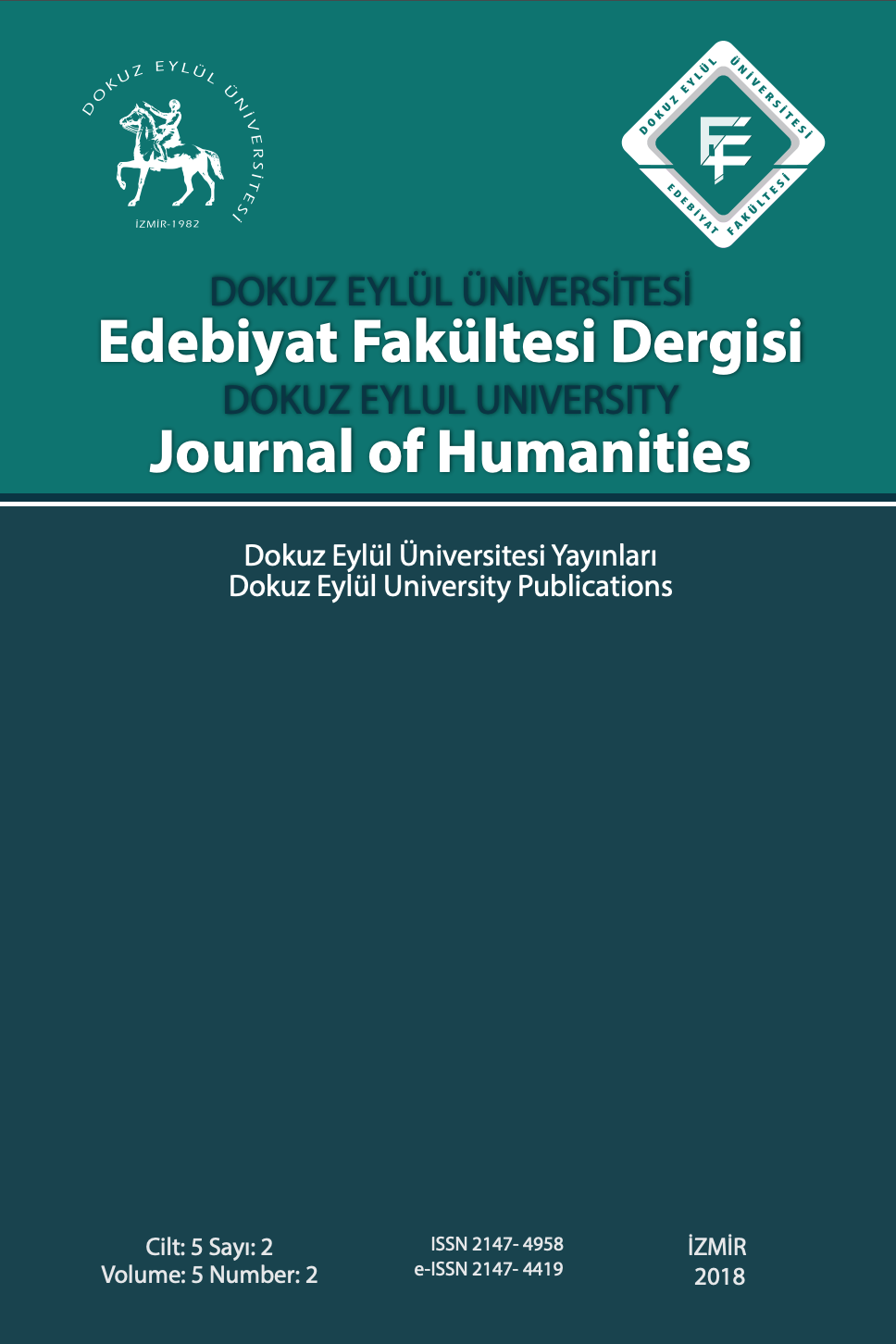BİLİMKURGUDA CİNSİYETİN YENİDEN KURGULANMASI: CHARLOTTE PERKINS GILMAN VE JAMES TIPTREE, JR.
Bu çalışmanın amacı, bir edebi tür olarak bilimkurgunun yıkıcı (subversive) öğelerini incelemektir. Söz konusu tür oldukça androsantrik (erkek-merkezci) olup çoğunlukla erkek yazarların alanı olmakla birlikte, bu alanda yaratılan eserlerin alternatif dünyalar tasarlamak için oldukça uygun olduklarını gözlemleriz. Bu çalışma, feminist ütopya veya feminist bilimkurgu olarak adlandırılan eserler yaratan kadın yazarları incelemektedir. Charlotte Perkins Gilman, 1915 yılında yayınladığı Kadınlar Ülkesi (Herland) ile, bu alanlarda bir öncü sayılmaktadır. Onun takipçisi olarak James Tiptree, Jr. bilimkurgu dünyasında yerini almıştır ve “Houston, Houston, Do You Read?” gibi kurgularında, alternatif gerçekliklerde, cinsiyet rollerini sorgulayıp yeniden tahayyül etmiştir. Gilman ve Tiptree’nin kurgusu, ataerkil dünyanın gerçekleri olan dikotomi (ikili karşıtlık) ve cinsiyetçi kültürden arınmış dünyalar inşa etmektedir. Cinsiyet dualitesinin (ikiliğinin) yarattığı hiyerarşik düzen, medeniyet ve kadın cinsi için yıkıcı sonuçlar doğurmaktadır. Bu çalışmada incelenen her iki yazar da cinsiyet dualitesinin ve bunun olumsuz etkilerinin olmadığı dünyalar yaratmaktadırlar.
Anahtar Kelimeler:
Bilim Kurgu, Cinsiyet, Feminist Kuram, Charlotte Perkins Gilman, Amerikan Edebiyatı, James Tiptree Jr
RECONSTRUCTING GENDER IN SCIENCE FICTION: CHARLOTTE PERKINS GILMAN AND JAMES TIPTREE, JR.
The aim of this study is to examine the subversive element of science fiction as a literary genre. Even though this area of literature established itself as a rather androcentric type of writing, mainly authored by male writers, the genre itself renders itself suitable for reimagining alternative realities. This paper focuses on woman writers who created invaluable works that are termed feminist utopia or feminist science fiction. Charlotte Perkins Gilman is a pioneer with her all-woman utopian society in her 1915 novel Herland. One of her followers in this genre is James Tiptree, Jr., who became a household name in the science fiction world, and who in her turn, creates alternate worlds in her fiction, such as “Houston, Houston, Do You Read?” where gender constructs are questioned and re-envisioned. Both Gilman’s and Tiptree’s fiction present different realities that are free from a dichotomous and sexist culture which pervades a patriarchal world. This gender duality gives way to a hierarchical order and all of its devastating results for civilization and the female sex. Both writers discussed in this paper created worlds where gender duality is non- existent, and hence, free of all its consequences.
Keywords:
Bilim Kurgu, Cinsiyet, Feminist Kuram, Charlotte Perkins Gilman, James Tiptree Jr,
___
- Attebery, Brian. (2002). Decoding Gender in Science Fiction. Routledge.
- Beauvoir, Simone de. (1953). The Second Sex. Trans, H. M. Parshley.
- Butler, Judith. (1993). Bodies That Matter: On the Discursive Limits of ‘Sex’. New York: Routledge.
- Cixous, Hélène. (1976). The Laugh of the Medusa. Trans. Keith Cohen and Paula Cohen. Signs, 1(4), 875-893.
- Freedman, Carl. (2000) Critical Theory and Science Fiction. Wesleyan U.P.
- Gilman, Charlotte Perkins. (1999). The Yellow Wall-Paper, Herland, and Selected Writings. Ed. Denise D. Knight. London: Penguin Books.
- ---, (1898). Women and Economics. A Study of the Economic Relation between Men and Women as a Factor in Social Evolution. Harper.
- Hollinger, Veronica. (2003). Feminist Theory and Science Fiction. The Cambridge Companion to Science Fiction. Ed. Edward James and Sarah Mendelsohn. Cambridge University Press. 125-136.
- İrigaray, Luce. (1985). This Sex Which is Not One. Trans. Catherine Porter. Cornell U.P.
- Lefanu, Sarah. (1988). Feminism and Science Fiction. Indiana U.P.
- Le Guin, Ursula K. (1993). Is Gender Necessary? Redux. The Language of the Night: Essays on Fantasy and Science Fiction. HarperPerennial.
- ---, (1989). The Fisherman's Daughter. Dancing at the Edge of the World: Thoughts on Words, Women, Places. Grove, 212—237.
- Millett, Kate. (1969). Sexual Politics. University of Illinois Press.
- Moore, C.L. (1944). No Woman Born. Astounding Science Fiction. Street & Smith Publications, Inc. 134-169.
- Russ, Joanna. (1981). Recent Feminist Utopias. Marleen S. Barr, ed., Future Females: A Critical Anthology. Bowling Green State University Popular Press, 71–85.
- ---, (2017). The Image of Women in Science Fiction. Science Fiction Criticism: An Anthology of Essential Writings. Ed. Rob Latham. London: Bloomsbury.
- ---, (1972). When It Changed. Again, Dangerous Visions. Vol 1: Doubleday, 768-774.
- Suvin, Darko. (1979). Metamorphoses of Science Fiction: On the Poetics and History of a Literary Genre. Yale University Press.
- Tiptree, James Jr. [Alice Sheldon]. (2004). Houston, Houston, Do You Read? Her Smoke Rose Up Forever. Tachyon Publications, 163-216.
- Wilde, Oscar. (1891). The Soul of Man under Socialism. Boston: J.W. Luce & Co, 1910.
- ISSN: 2147-4958
- Yayın Aralığı: Yılda 2 Sayı
- Başlangıç: 2011
- Yayıncı: Dokuz Eylul Üniversitesi Matbası
